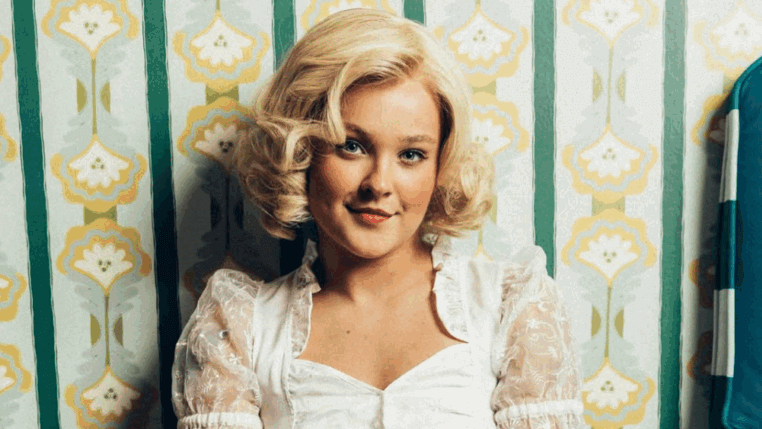Summary:
-
JoJo Siwa’s cover of “Bette Davis Eyes” faces criticism for vocals and visuals, sparking debate on authenticity and artistic evolution.
-
Fans speculate if Kim Carnes subtly responded to the controversy, adding fuel to the fire as supporters and skeptics weigh in.
-
The mixed reception highlights a broader conversation on young artists reinterpreting classics and facing immediate judgment in the music industry.
JoJo Siwa’s recent cover of the classic hit “Bette Davis Eyes” is making waves, but not entirely for the reasons she may have hoped. The singer and social media personality revealed a snippet of her studio version of the track this week, only to be met with a flood of online criticism and speculation about whether Kim Carnes herself weighed in.
The song, originally written by Donna Weiss and Jackie DeShannon, became iconic in 1981 after Carnes’ raspy, synth-heavy rendition hit No. 1 on the Billboard Hot 100 and won two Grammy Awards. JoJo debuted her modern spin on the track during a performance in Mexico this past May, making a notable lyrical change to reference her boyfriend, Chris Hughes.
But when she shared a preview of her full studio version online, reactions were swift, and divided.
@itsjojosiwa After performing this song live and then seeing the beautiful response to it, I decided to go record a studio vocal…. I’m undecided if I should release it on Spotify or not…. Would you want me to?!!!🤍 if you would, I’m thinking maybe end of this week?
Online Criticism Over Vocals and Visuals
JoJo’s bold, theatrical performance and retro Hollywood aesthetic drew sharp responses on TikTok and X (formerly Twitter). Critics pointed to her “raspy” vocal delivery and her throwback styling, which some labeled as overly forced or inauthentic.
“Is this an anti-smoking campaign?” one user joked in a TikTok comment that gained traction. Another questioned, “I can’t tell if this is serious or…” Others compared the vocal style unfavorably to Carnes’ iconic delivery, calling JoJo’s take “karaoke at best.”
ADVERTISEMENT
Her Old Hollywood styling also drew comparisons to the “tradwife” aesthetic, a retro-feminine look sometimes linked to traditional gender roles, which prompted further discussion online about whether JoJo’s evolving image is an intentional pivot or simply a creative experiment.
@irankthingstt Ranking the Best Bette Davis Eyes Cover by JoJo Siwa Moments #jojosiwa #jojosiwaoffical #bettedaviseyes #accurate #cover #funny #meme #ranked #ranking #fyp Disclaimer: All content has been highly edited and transformed. Credit: TikTok @denzelcrispy @imfaithelizabeth @legitjacobg @snarkymarky @teagdani @jer_cooper @kbhole
@missfiercalicious Fabulicious eyes 🥹 #jojosiwa #bettedaviseyes
@crazy_stuff_we_do_utah I couldn’t sing it so I will just leave it at that. @JoJo Siwa doing her thing #jojosiwa #jojo #bettedaviseyes Could you sing it better?
Did Kim Carnes Subtly Respond?
In a surprising twist, fans believe Kim Carnes herself may have subtly chimed in on the controversy. A post attributed to Carnes’ verified TikTok account briefly surfaced this week before disappearing. According to screenshots and lingering Google search results, the post read:
“There is a difference between singing a song… And embodying it… I’ve always believed authenticity is what makes music timeless… I’m forever grateful to the voice behind this one.”
While the message doesn’t mention JoJo by name, the timing and context had many assuming it was a thinly veiled critique. At the time of writing, the original post is no longer visible on Carnes’ TikTok page, though cached previews remain searchable.
ADVERTISEMENT
Whether the post was a subtle dig or a general reflection, it added fuel to the fire as the internet continued to dissect JoJo’s cover.
Fan Reactions: Supporters and Skeptics Speak Out
Despite the backlash, some fans have rallied behind JoJo, applauding her for taking creative risks and reviving a beloved classic for a new generation.
“She’s clearly having fun and bringing her own style to it,” one fan commented. “Not every cover has to sound exactly like the original.”
Others defended her artistic evolution, pointing out that JoJo has long pushed boundaries with her music, visuals and personal expression. “She’s always done things her own way,” another supporter wrote. “People just love to tear her down when she tries something different.”
Was this an attempt to imitate Miley Cyrus’ raspy voice because girl………
— EA 🌸 (@yannabanans) July 8, 2025
Still, the mixed response has sparked a broader conversation around how young artists approach iconic material—and how much room they’re given to reinterpret classics without being met with immediate judgment.









